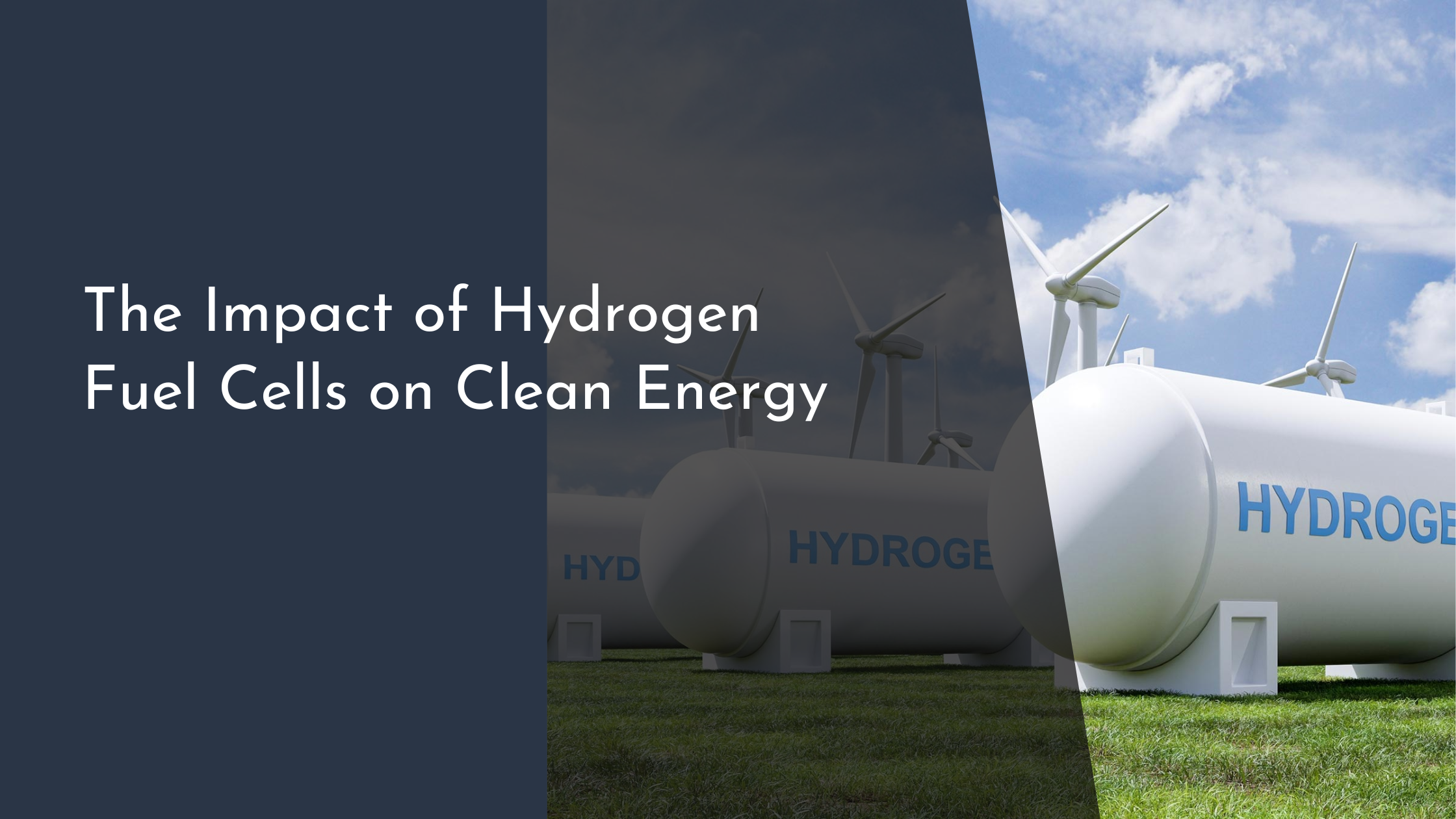The Impact of Hydrogen Fuel Cells on Clean Energy
The quest for clean and sustainable energy solutions has become a pivotal focus in the fight against climate change. Among the various emerging technologies, hydrogen fuel cells have garnered significant attention due to their potential to revolutionize the energy landscape. This article delves into the impact of hydrogen fuel cells on clean energy, highlighting their technology, environmental benefits, economic implications, and the promising future they herald.
Introduction to Hydrogen Fuel Cells Technology
Hydrogen fuel cells are a transformative technology that converts chemical energy into electrical energy through a clean and efficient process. At their core, these cells utilize hydrogen gas as a fuel source, combining it with oxygen to produce electricity, water, and heat. Unlike traditional combustion engines, hydrogen fuel cells do not rely on burning fuel, which eliminates the production of greenhouse gases and harmful emissions. This technology represents a significant advancement in the quest for sustainable energy, offering a zero-emission solution that can be applied across various sectors, including transportation, industry, and residential power.
The versatility of hydrogen fuel cells extends beyond their environmental benefits. In terms of efficiency, these cells offer higher energy outputs compared to traditional energy sources. They can operate continuously as long as a fuel supply is maintained, making them ideal for applications requiring stable and reliable power. Additionally, hydrogen fuel cells can be utilized in diverse scales, from portable power systems to large-scale power plants, highlighting their adaptability. As research and development in this field continue to advance, the potential for hydrogen fuel cells to become a cornerstone of clean energy infrastructure becomes increasingly viable.
Environmental Benefits of Hydrogen Energy
One of the most significant environmental benefits of hydrogen fuel cells is their ability to produce electricity without emitting carbon dioxide or other pollutants. When hydrogen is utilized in a fuel cell, the only byproducts are water and heat, making it one of the cleanest energy sources available. This characteristic positions hydrogen fuel cells as a crucial component in reducing air pollution and mitigating the impacts of climate change. By displacing fossil fuels in sectors such as transportation and power generation, hydrogen fuel cells can contribute significantly to lowering global carbon footprints and promoting cleaner air quality.
Furthermore, hydrogen energy presents a sustainable alternative that can complement intermittent renewable energy sources like solar and wind. Hydrogen can be produced through various methods, including electrolysis powered by renewable energy, allowing for the storage and use of excess energy generated during peak production times. This capability offers a solution to the intermittency issues faced by renewable energy sources, providing a reliable energy backup and enhancing grid stability. Through these environmental advantages, hydrogen fuel cells present an opportunity to transition towards a more sustainable and ecologically friendly energy system.
Economic Impacts and Industry Advancements
The economic implications of hydrogen fuel cells are substantial, offering potential cost savings and job creation opportunities. As the technology matures and scales up, the cost of producing and deploying hydrogen fuel cells is expected to decrease, making them more competitive with traditional energy sources. This economic viability can stimulate investment and innovation within the energy sector, driving the growth of a new industrial landscape centered around hydrogen production, storage, and distribution. Moreover, the global shift towards hydrogen energy can create numerous job opportunities, from research and development to manufacturing and maintenance, supporting economic growth and workforce development.
Industry advancements in hydrogen fuel cell technology are progressing rapidly, with significant investments being made by governments and private companies alike. Automobile manufacturers, for example, are exploring hydrogen fuel cells as an alternative to traditional internal combustion engines, with several hydrogen-powered vehicles already available on the market. Additionally, advancements in infrastructure, such as the development of hydrogen refueling stations and pipelines, are being prioritized to support widespread adoption. As these developments continue, the potential economic benefits of hydrogen fuel cells could become a driving force in transitioning to a green economy.
Conclusion: A Bright Future with Hydrogen Fuel
Hydrogen fuel cells hold the promise of a cleaner, more sustainable energy future. Their technological capabilities, combined with their environmental benefits and economic potential, position them as a vital component in the global shift towards renewable energy. As innovation continues to propel the industry forward, hydrogen fuel cells offer a pathway to reduced emissions, enhanced energy security, and a more sustainable planet.
The integration of hydrogen fuel cells into the energy landscape represents a significant leap towards achieving global sustainability goals. With their ability to provide clean, reliable power and their growing economic viability, hydrogen fuel cells are poised to play a central role in the transition to a low-carbon economy. As advancements in technology and infrastructure continue to unfold, the future of clean energy with hydrogen fuel looks promising and bright, offering a beacon of hope for a greener tomorrow.

